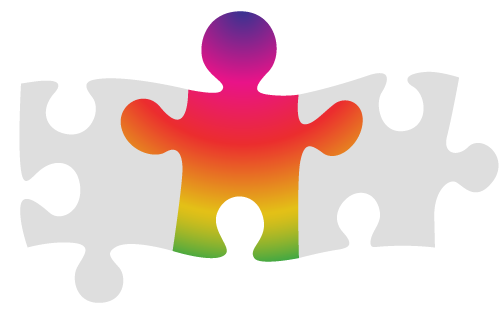from Betty's mom
After a bit of a struggle with infertility, we were blissfully enjoying my pregnancy as we awaited the birth of our second child. I had a normal pregnancy until the 20-week ultrasound. We expected to find out the gender of our child and hear that our baby was healthy, and all was well. Instead we found out our baby girl had three soft markers possibly indicating a chromosomal abnormality of some kind. Thankfully, additional testing revealed that the concerns were superficial and there were no additional reasons to worry - the neonatologist assured us that we should expect a healthy baby girl.
I had an uneventful delivery and other than being a SUPER sleepy baby who had a hard time getting the hang of eating, everything seemed pretty normal with Betty. She was quite different from her older sister, but I chalked it up to her simply being a different child; her own little person. At her two month well-check, I had a list of concerns, but I fully expected our pediatrician to kind of blow them off as insignificant, encouraging me to just give her time. In reality, he was actually quite worried. She had a chronic cough (which turned out to be related to acid reflux from what we can tell), an umbilical hernia, misshapen skull, was not smiling or engaging visually, and was unaware of her hands. He wrote "global developmental delays" on the Early Intervention pamphlet and told me to call them. I thought it sounded a bit extreme, but now I'm so thankful he was so aware of the issues we were dealing with from early on.
We visited the ophthalmologist who reported that her eyes and optic nerve were perfectly healthy, though he agreed that she was not tracking well and not engaging with her world visually. We got a CT scan to rule out craniosynostosis and while her skull sutures were open (which is good), they noted something "fuzzy" about part of her brain and ordered an MRI to rule out a stroke or underdeveloped brain. The MRI was normal. Lots of blood tests followed - all of which were normal. We started Early Intervention around two months in gross motor and cognitive areas. We met with a neurologist who ordered genetic testing which our insurance refused to cover. More blood tests were done, and everything kept coming back normal. But as time went on, Betty's delays seemed more pronounced and we continued to hang on to some worry about her development. Betty would never look at our faces and seemed to gaze past us.
Around seven months of age, we met with our geneticist for the first time. He noted possible cortical blindness, hypotonia, and her very placid temperament. He ordered genetic testing (among others) and our insurance finally agreed to cover it. Another visit to the ophthalmologist confirmed once again that her eyes were healthy, but her brain might not be processing what she was seeing. He confirmed a diagnosis of cortical visual impairment.
After a few weeks, we met with our geneticist and received an official diagnosis - Potocki-Shaffer Syndrome. Together with our doctors, we have been learning first hand what that truly means. The future is still full of unknowns, but we just love having sweet Betty in our family!
As a baby, Betty was very content, sleepy and slow to progress. Her development seems to happen in spurts - she will have long plateaus where it seems as if nothing will ever happen and then overnight something big changes. Her visual engagement is improving, she's becoming more vocal, and around 21 months of age she started sitting unassisted. Moving to solid foods was tricky and took a lot of exposure and patience, but now Betty enjoys a huge variety of foods and happily feeds herself with her hands. She enjoys walking in her gait trainer and can stand at the couch for nearly a minute without additional support. She sits well and rolls to get where she wants to go. She's a good sleeper and a sweet little ray of sunshine. Our days are filled with various therapies - physical, feeding, vision, occupational, speech and cognitive. We hope to start hippotherapy when we find some time between appointments!
At two years of age, Betty is still quite content and happy. She will let us hand her off to anyone without a fuss. She enjoys being tickled and loves music and lights. She still only seems fully engaged with others and her world intermittently, but she is becoming more and more responsive as time goes on. In the coming months she will start to take growth hormones to help with her IGF-1 deficiency and short stature. We look forward to this as other parents have reported their children making great developmental strides with this treatment.
We look forward to Betty's continued development and relish her super long stretch of baby days. We never tire of celebrating her and every ounce of progress that she makes.
Betty's mom has a podcast featuring stories and interviews with special needs families - subscribe and listen here!

